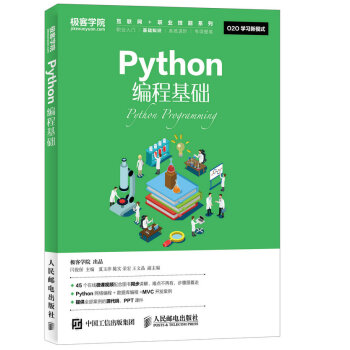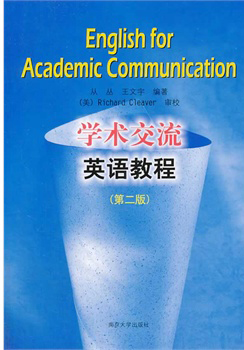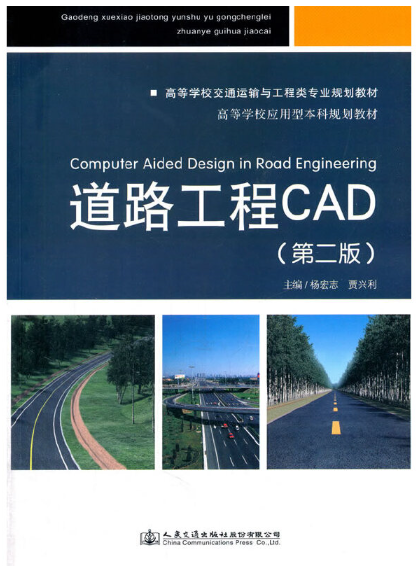基于培养学习者自主性的多媒体教材评估研究 / 外语教学指导与学术研究系列丛书
定价:¥36.00
作者: 梁铜华 著
出版时间:2015-04-01
出版社:北京理工大学出版社
- 北京理工大学出版社
- 9787568207034
- 1
- 141413
- 2015-04-01
- G434
作者简介
内容简介
"20世纪80年代以来,自主学习作为一种教育目标、学习过程、学习模式和教学模式受到空前的重视并得到广泛研究,多媒体教材也应运而生。在我国,探究自主学习能力和进行多媒体教学关系的研究才刚刚起步,很多方面尚未成熟,本书正是在这样的背景下通过实证研究著成的。
本书共分5部分。第1部分是概述,介绍了“基于培养学习者自主性的多媒体教材评估研究”的背景、目标及相关基础理论知识;第2部分是文献综述,阐释了学习者自主性相关的概念、原理、主要因素、开发方法,教材评估及相关术语的定义,教材的作用,教材评估的类型,教材评估的手段,培养学习者自主性视角下的教材评估的基础理论知识及评估指导原则;第3部分是研究方法,解释了相关研究工具——访谈、问卷调查等的原理、相关知识及具体情况;第4部分是研究结果与讨论,叙述了对本研究所做的因子分析情况,讨论了主要影响因素及其相互关系;第5部分是研究结论,总结了本研究的成果、局限及展望。
本书对相关研究人员具有很好的借鉴作用。
"
本书共分5部分。第1部分是概述,介绍了“基于培养学习者自主性的多媒体教材评估研究”的背景、目标及相关基础理论知识;第2部分是文献综述,阐释了学习者自主性相关的概念、原理、主要因素、开发方法,教材评估及相关术语的定义,教材的作用,教材评估的类型,教材评估的手段,培养学习者自主性视角下的教材评估的基础理论知识及评估指导原则;第3部分是研究方法,解释了相关研究工具——访谈、问卷调查等的原理、相关知识及具体情况;第4部分是研究结果与讨论,叙述了对本研究所做的因子分析情况,讨论了主要影响因素及其相互关系;第5部分是研究结论,总结了本研究的成果、局限及展望。
本书对相关研究人员具有很好的借鉴作用。
"
目录
List of Tables
List of Figures
Chapter 1 Introduction
1.1 Background information
1.2 Objectives of the research
1.3 Rationale for the research
Chapter 2 Literature Review
2.1 Definition of learner autonomy
2.2 Rationale for promoting learner autonomy
2.3 Major components of learner autonomy
2.3.1 Learning management
2.3.2 Cognitive processes
2.3.3 Learner control over learning contents
2.4 Approaches to the development of learner autonomy
2.4.1 Analyzing learners' needs
2.4.2 Multiplying teacher's roles
2.4.3 Enhancing the use of technology
2.4.4 Ensuring the quality of course-books
2.5 Research on course-book evaluation
2.5.1 Definitions of course-book and related terms
2.5.2 Roles of course-books
2.5.3 Types of course-book evaluation
2.5.4 Processes and means of the course-book evaluation
2.5.5 Rationale for evaluating course-books with regard to learner autonom
2.5.6 Guidelines for course-book evaluation
Chapter 3 Methodology
3.1 Rationale for using different research tools
3.2 Unstructured interviews
3.2.1 Subjects
3.2.2 Procedures
3.2.3 Findings
3.3 Questionnaire with open questions
3.3.1 Subjects
3.3.2 Design of the questionnaire
3.3.3 Data-analysis
3.3.3.1 Students' responses to the questionnaire
3.3.3.2 Teachers' responses to the questionnaire
3.4 Questionnaire with closed questions
3.4.1 Design
3.4.2 Subjects
3.4.3 Data-analysis
Chapter 4 Results and Discussion
4.1 Factor analysis
4.1.1 Exploring the data's appropriateness for factor analysis
4.1.2 Identifying the factors
4.1.3 Naming the factors and reporting the results
4.2 Discussions about the major factors
4.2.1 Subjects' learner autonomy
4.2.2 Evaluation of course-books with regard to learner autonomy
4.2.2.1 Extemal evaluation ofthe course-books
4.2.2.2 Internal evaluation of the course—books
4.2.2.3 Overall evaluation of the course-books
4.2.3 Additional effects of the course—books
4.2.4 Subjects’needs forEnglish
4.2.5 Subjects’needs for English listening and speaking
4.3 Correlations between the five major factors
Chapter5 Conclusions
5.1 Findings
5.2 Limitations ofthe research
5.3 Suggestions for further research
Bibliography
Appendices
Appendix One Checklist of the unstructured interview
Appendix Two 教师调查问卷
Appendix Three 学生调查问卷
Appendix Four Questionnaire
Appendix Five Factual details of materials to be evaluated
List of Figures
Chapter 1 Introduction
1.1 Background information
1.2 Objectives of the research
1.3 Rationale for the research
Chapter 2 Literature Review
2.1 Definition of learner autonomy
2.2 Rationale for promoting learner autonomy
2.3 Major components of learner autonomy
2.3.1 Learning management
2.3.2 Cognitive processes
2.3.3 Learner control over learning contents
2.4 Approaches to the development of learner autonomy
2.4.1 Analyzing learners' needs
2.4.2 Multiplying teacher's roles
2.4.3 Enhancing the use of technology
2.4.4 Ensuring the quality of course-books
2.5 Research on course-book evaluation
2.5.1 Definitions of course-book and related terms
2.5.2 Roles of course-books
2.5.3 Types of course-book evaluation
2.5.4 Processes and means of the course-book evaluation
2.5.5 Rationale for evaluating course-books with regard to learner autonom
2.5.6 Guidelines for course-book evaluation
Chapter 3 Methodology
3.1 Rationale for using different research tools
3.2 Unstructured interviews
3.2.1 Subjects
3.2.2 Procedures
3.2.3 Findings
3.3 Questionnaire with open questions
3.3.1 Subjects
3.3.2 Design of the questionnaire
3.3.3 Data-analysis
3.3.3.1 Students' responses to the questionnaire
3.3.3.2 Teachers' responses to the questionnaire
3.4 Questionnaire with closed questions
3.4.1 Design
3.4.2 Subjects
3.4.3 Data-analysis
Chapter 4 Results and Discussion
4.1 Factor analysis
4.1.1 Exploring the data's appropriateness for factor analysis
4.1.2 Identifying the factors
4.1.3 Naming the factors and reporting the results
4.2 Discussions about the major factors
4.2.1 Subjects' learner autonomy
4.2.2 Evaluation of course-books with regard to learner autonomy
4.2.2.1 Extemal evaluation ofthe course-books
4.2.2.2 Internal evaluation of the course—books
4.2.2.3 Overall evaluation of the course-books
4.2.3 Additional effects of the course—books
4.2.4 Subjects’needs forEnglish
4.2.5 Subjects’needs for English listening and speaking
4.3 Correlations between the five major factors
Chapter5 Conclusions
5.1 Findings
5.2 Limitations ofthe research
5.3 Suggestions for further research
Bibliography
Appendices
Appendix One Checklist of the unstructured interview
Appendix Two 教师调查问卷
Appendix Three 学生调查问卷
Appendix Four Questionnaire
Appendix Five Factual details of materials to be evaluated







